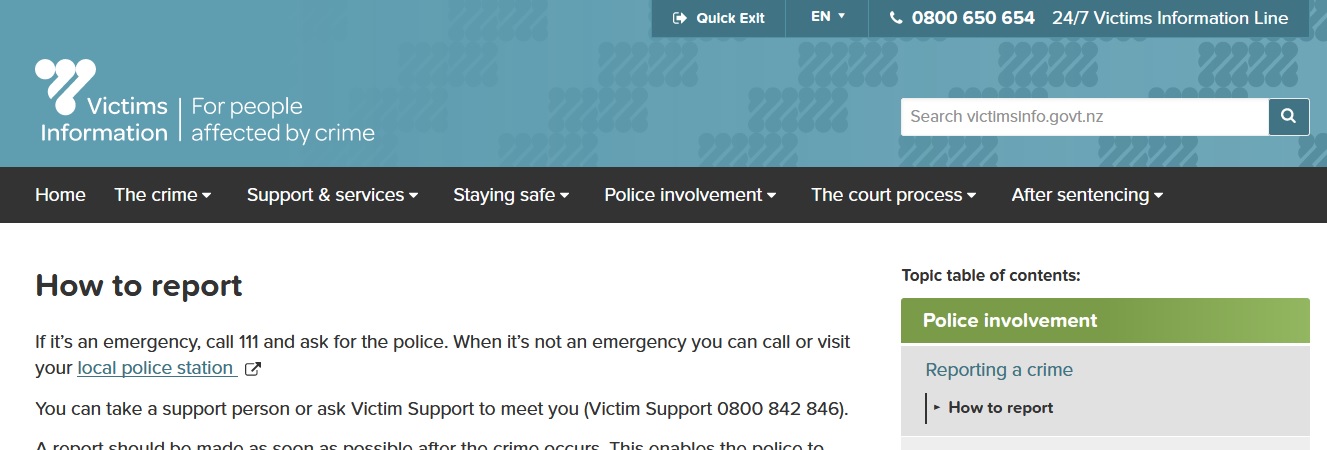Organization : Victims Information Ministry of Justice
Facility : How to Report a Crime
Country : New Zealand
Website : https://victimsinfo.govt.nz/
Victims Information Report a Crime
If it’s an emergency, call 111 and ask for the police. When it’s not an emergency you can call or visit your local police station
Related : Check Stolen Vehicle Online New Zealand Police : www.statusin.org/6824.html
You can take a support person or ask Victim Support to meet you (Victim Support 0800 842 846). A report should be made as soon as possible after the crime occurs. This enables the police to investigate the crime before valuable evidence is lost or destroyed.


Who Can Report the Crime?
Anyone who knows about a crime can report it to the police. This includes :
** the victim of the crime
** a person who has seen the crime (sometimes called an eyewitness)
** the person who has committed the crime
** a person who knows about the crime can make an unofficial report even if they have no personal knowledge of, or involvement in, the crime
** a friend or relative of the victim may escort the victim to a police station and assist them to report the crime.
Making a Report
When you make a report, tell the police exactly what happened. The police officer will write down what you say.
After you have reported a crime, the police will :
** send you a letter or a complaint acknowledgement form with a file reference number
** explain the investigation process
** ask you if you want to stay informed about the progress of your case
** ask you how you would like to be contacted
** refer you to Victim Support or other support services if you need them.
Police Reference Number
After you have made your report (also called a ‘complaint’), the police will give you a Police NIA reference number or a Police File Number (PFN). You should refer to this number when you contact the police.
Making a Statement to Police
If you are the victim or witness of a crime, the officer in charge will ask you to make a detailed statement about what happened. This is different to reporting the crime. You may be asked to make a statement when you report the crime or later on. You do not need to have a lawyer when you make a statement.
Your Statement :
You do not have to make a statement or answer questions but it will help police investigate the crime. Victims often provide important evidence that help police charge the accused person and prevent them from committing the crime again.
Tell the police, in your own words, everything you remember about what happened. Sometimes the questions police must ask might be difficult or embarrassing to answer.
Try not to leave anything out, even if you don’t think it is important. In some cases, police may record a video of you giving your statement. Police will usually video record the statements of child victims.